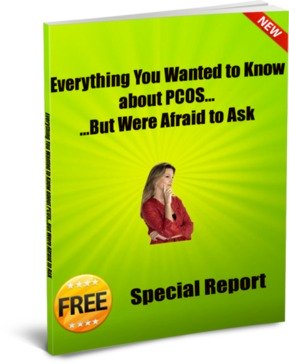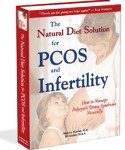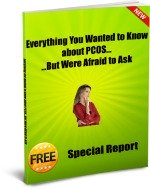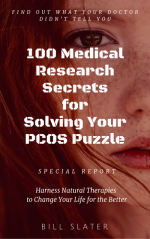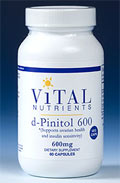PCOS Review Newsletter #54
1) "Stone Age" Diet vs. "Mediterranean" Diet
2) Metformin and Glitazones: Do They Really Help PCOS?
3) Feeling Tired? Exercise a Little
1) "Stone Age" Diet vs. "Mediterranean" Diet - Which Is Best for You?
PCOS and diabetes share many attributes, including glucose intolerance. In fact, polycystic ovary syndrome can easily develop into full-blown diabetes.
Glucose intolerance is the increased blood sugar (glucose) levels following a meal (or glucose tolerance test). The degree of glucose elevation can be severe, as in diabetes, or relatively modest in people with impaired glucose tolerance, a state of abnormal glucose metabolism between normal and diabetic.
It's well known that diet plays a huge role in whether you become glucose-intolerant or not. And whether you will suffer the possible long-term consequences of PCOS, such as diabetes and cardiovascular disease.
There are dozens of medical research studies that demonstrate the superiority of the so-called Mediterranean diet over the standard American diet of refined carbs and high fat.
But there's another diet you haven't heard much about. It's called the Stone Age or Paleolithic diet. It is the diet humans consumed before the advent of modern agriculture.
But there's another diet you haven't heard much about. It's called the Stone Age or Paleolithic diet. It is the diet humans consumed before the advent of modern agriculture.
Twenty nine people with heart disease and glucose intolerance problems were studied for 3 months. They were put into two groups. One group had a Mediterranean-type diet of whole grains, low-fat dairy products, vegetables, fruits, fish, oils and margarines. The other group had a Paleolithic-type diet based on lean meat, fish, fruits, vegetables, root vegetables, eggs, and nuts.
Those who were put on the Mediterranean diet had a 7% improvement in their glucose intolerance and their waist circumference decreased by 2.9 cm.
The Mediterranean diet was beneficial -- but the Paleolithic diet was even more beneficial.
Those on the Paleolithic diet had a 26% improvement in their glucose intolerance and their waist circumference decreased by 5.6 cm.
In this study, the Paleolithic diet was almost four times better than the Mediterranean diet at getting blood sugar under control. It was also nearly twice as effective in reducing waist circumference (belly fat).
To learn more about the Paleolithic diet, read The Natural Diet Solution for PCOS and Infertility, which is based on Paleolithic diet principles.
Source:
Lindeberg S et al, A Palaeolithic diet improves glucose tolerance more than a Mediterranean-like diet in individuals with ischaemic heart disease, 2007 Sep;50(9):1795-807
2) Metformin and Glitazones: Do They Really Help PCOS?
Metformin (Glucophage) is a medication intended to reduce insulin resistance and blood sugar excess, which is a primary problem in polycystic ovarian syndrome. Another class of medications for insulin resistance is called thiazolidinedione or "glitazones". Members of this drug family include rosiglitazone (Avandia) and pioglitazone (Actos).
Have these drugs been proven to reduce PCOS symptoms in randomized, controlled clinical trials?
The Methodist Family Medicine Residency Program in Houston attempted to answer this question by reviewing 33 clinical trials that tested either metformin or a glitazone.
They did not comment on glitazones because there was not enough data to draw a conclusion. However, their conclusions about metformin were quite interesting.
The researchers said: "There was no clinically significant change with metformin in ovulation rate, pregnancy rate, body mass index, waist-to-hip ratio, hirsutism, LH/FSH, fasting insulin, fasting blood glucose, total testosterone, free testosterone, androstenedione, and dehydroepiandrosterone sulfate."
When they say "there was no clinically significant change with metformin", you can take that as an indication that this drug will not necessarily help you. It may help you, but don't get your expectations too high. Also, you should be aware of metformin's side effects.
The glitazones also have side effects that are controversial. One of the glitazone drugs, Rezulin, was taken off the market because it caused liver damage. In an earlier newsletter, we told you about that another drug, Avandia, might lead to cardiovascular problems and increased risk of bone fracture.
There was disturbing news from very recent study of overweight women with PCOS who took Actos, which is a glitazone drug. This study showed that after 16 weeks on Actos, the women started to experience bone loss in their hips and spine.
Here's the Bottom Line: It's wise to fully understand both the benefits and the risks of any medication your doctor tells you to take. It's also wise to explore other ways of achieving your health goals, such as better diet, more exercise, stress management, and taking nutritional supplement that don't have side effects.
Sources:
Pillai A et al Metformin and glitazones: do they really help PCOS patients?, J Fam Pract. 2007 Jun;56(6):444-53
Glintborg D et al Association of pioglitazone treatment with decreased bone mineral density in obese premenopausal patients with polycystic ovary syndrome: a randomized, placebo-controlled trial, J Clin Endocrinol Metab. 2008 Feb 19 [Epub ahead of print]
3) Feeling Tired? Exercise a Little.
When you feel fatigued or just plain tired out, it's natural for you to want to sit down and turn on the TV. Or reach for another cup of coffee. The last thing you're thinking about is exercise.
But a research team at the University of Georgia discovered that regular, low-intensity workouts such as a leisurely stroll can boost energy levels by 20% and decrease fatigue by 65%.
They were divided 36 people into three groups. One did 20 minutes of moderately intense exercise on an exercise bike three times a week for six weeks, the second did similar workouts but at a much more leisurely pace and the third did no exercise.
The low- and moderate-intensity groups had a 20% increase in energy levels over the non-exercisers.
To their surprise, the researchers found the low-intensity group reported better reduction in fatigue than those who worked out harder. One of the researchers said that the moderate-intensity exercise may be too much for people who are already fatigued.
So if you're feeling tired out and just want to be a couch potato, try walking around the block to regain some energy. Another good energy booster is to take a nap.
If you are always fatigued in spite of getting plenty of sleep, check into possible medical reasons why you're having a problem, such as low thyroid function, anemia, infection, etc. It's also very helpful to eat a wholesome diet.
Source:
Puetz TW et al, A Randomized Controlled Trial of the Effect of Aerobic Exercise Training on Feelings of Energy and Fatigue in Sedentary Young Adults with Persistent Fatigue, Psychother Psychosom. 2008 Feb 14;77(3):167-174
Thought for Today: "When one door of happiness closes, another opens; but often we look so long at the closed door that we do not see the one that has been opened for us" -- Helen Keller
PCOS Health Review
This free newsletter gives you original and immediately usable information to help you deal with PCOS.
Get the latest research, tips for improving your health, answers to questions, success stories, and more!
Your e-mail address is totally secure. We will never misuse your information.
Enter Your Email Above to Subscribe Today
and Get Your Questions Answered in this Free Special Report!
